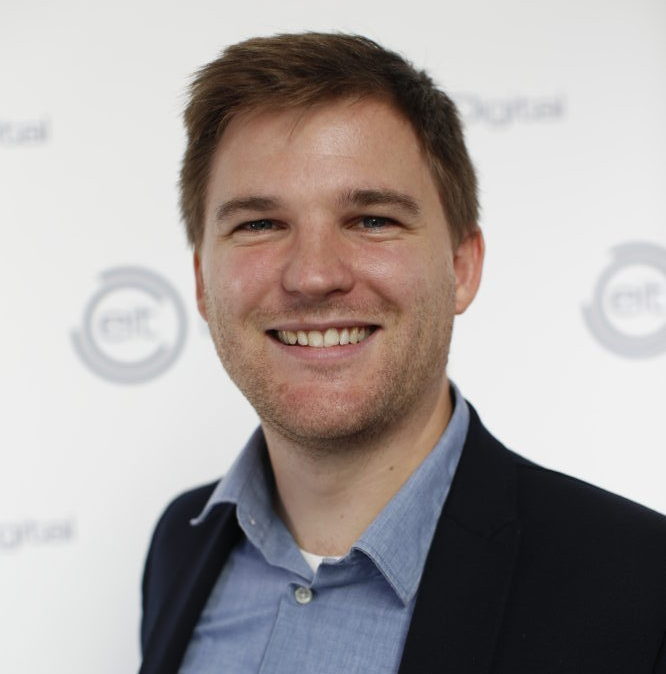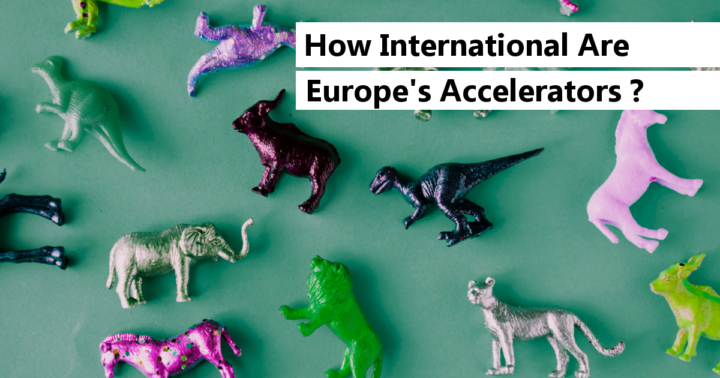Startup accelerators are key drivers of the European startup ecosystem: Investors scout for their dealflow, corporates see them as factories for new technologies, and politicians want them to make their regions shine. But with the explosion in numbers, the question arises: can our European accelerators live up to the hype?
One key success factor for accelerators is their ability to aggregate the best entrepreneurial talent and ideas from a larger region, especially in Europe, where metropolitan areas are small and local talent pools limited. Therefore, we look at how international accelerators in Europe are and from where they are able to attract participants.
We Looked at Them One by One
We analyzed the portfolio of the leading European accelerators for the origins of the CEO and (Co-)Founder of their startups. First, we had to narrow down the field, as the exponential growth rate of self-identifying accelerators has surpassed 10.000 world-wide, according to Gust´s 2016 Global Accelerator Report (and they seem to have given up counting since then). So, we started with a select number of 98 European top-tier accelerator programs, guided by the publication “Startup accelerators in Europe – a complete overview” from EU-Startups.com. We then looked them up on Crunchbase.com, the accelerators´ websites, blogs and press releases, searched on publicly accessible platforms such as F6S, AngelList, LinkedIn, or looked up information on the homepage of the respective startup.
We counted only accelerators that had publicly available information of at least 9
graduating ventures between January 2015 and August 2018. We do not pretend
that our data is complete or representative for the entire European startup
ecosystem, but we managed to collect plausible and reproducible mobility data
for 1.342 startups from 71 different accelerator programs in 18 European countries. What we were looking for was name, country and city of the accelerator, country and city of the startup HQ, name and origin country and origin city of the startup founder, focusing on the CEO and (Co-)Founder, and we tracked the date of graduation/investment round together with the date of our data entry (yes, it was tedious manual labor, and yes, if you have a suggestion on how to automate it, give us a call).

After cleaning up the data (eliminating accelerators with less than 9 graduated startups, sorting out programs with an overly regional bias and incomplete or inconclusive data), we ended up with clean data for 1.137 startups and their founders, linked to 37 leading accelerators from 12 different countries.
What do we consider the origin of a startup founder? To begin with, we are not interested in any cultural, ethnic or national classification of people. What we are looking for, however, is traceable lines of movement of startup entrepreneurs, to better understand patterns and trends of mobility and the attractiveness of European startup hubs. Naturally, we could not look at birth certificates and it was impossible to get an answer from everyone, so we focused on information available publicly on the internet (Crunchbase, F6S, AngelList, LinkedIn, accelerator/startup websites, press releases etc.). Our key question was: Where did this person grow up or spent most of his/her formative years? Criteria for this were the location of the educational institution of their first major degree, their career locations, their self-identification, or whether they moved right before founding the startup under investigation. We used our best judgement, and in case of uncertainty we skipped the case rather than resorting to guessing.
Our findings
- Each of the 37 leading European startup accelerators had an average of 30 startups in the 32-month research period.
- On average 43% percent of startup founders at the investigated accelerators have an international background.
- Each accelerator attracted startup founders from 8.7 different countries, on average.
- The top five accelerators with the highest international appeal are (see table 1)
- Startupbootcamp HighTech XL
- Virgin Media Accelerator
- Startup Wise Guys
- Tech Stars London
- Hub:raum
- French, Italian, and Spanish accelerators have a low share of international founders, while British, Dutch, and German accelerators have a high share of international founders (see table 2).
- Wayra Madrid leads the list of the 10 least international accelerators, as exhibited not a single foreign startup founder (see table 3).
Table 1: The top 5 most international accelerators
Accelerator | Rank | Country | City | Startups | % int’l | countries |
Startupbootcamp HighTech XL | 1 | Netherlands | Eindhoven | 28 | 89% | 17 |
Virgin Media Accelerator | 2 | UK | London | 10 | 80% | 8 |
Startup Wise Guys | 3 | Estonia | Tallinn | 69 | 80% | 26 |
Tech Stars London | 4 | UK | London | 33 | 76% | 19 |
Hub:raum | 5 | Germany | Berlin | 28 | 75% | 15 |
As our reports show, accelerators in Germany, the UK, and the Netherlands are attracting a high share of international talent, while their peers in France, Italy, and Spain exhibit a much more national clientele.
Table 2: International reach by country
Country | Rank | Accelerators | Startups since 2015 | % of international founders |
Netherlands | 1 | 4 | 97 | 67% |
Germany | 2 | 7 | 178 | 50% |
UK | 3 | 10 | 244 | 46% |
France | 4 | 3 | 121 | 15% |
Spain | 5 | 5 | 131 | 7% |
We only considered select accelerators (see details in article) and countries represented with more than one accelerator in our data set.
While each accelerator obviously concentrates on its own business model and target groups, we see many striving for attracting international talent as a factor for success. Accelerators such as Startupbootcamp HighTech XL (Eindhoven, Netherlands) with 89% international founders and Startup Wise Guys (Tallinn, Estonia) with founders from an astounding 26 different countries stand out in terms of international appeal compared to their peers who, as in one extreme case, did not have a single international founder within the investigation period.
Table 3: The 10 least international accelerators
Accelerator | Country | City | Startups | % int’l | countries |
Wayra Madrid | Spain | Madrid | 38 | 0% | 1 |
Plug and Play Accelerator | Spain | Valencia | 21 | 5% | 2 |
Seedrocket | Spain | Barcelona | 21 | 5% | 2 |
Digital Magics | Italy | Milan | 32 | 6% | 2 |
Orange Fab | France | Paris | 39 | 8% | 3 |
Wayra Barcelona | Spain | Barcelona | 34 | 12% | 4 |
Bolt Accelerator | Spain | Málaga | 17 | 12% | 3 |
NUMA Sprint | France | Paris | 68 | 16% | 9 |
Bethnal Green Ventures | UK | London | 36 | 17% | 5 |
TheFamily | France | Paris | 14 | 21% | 4 |
With these findings, we can confirm our hypothesis that accelerators are a strong contributor to founder mobility and help to connect the fragmented European startup scene. However, not everything what shines is gold: Quite some examples of accelerators fall short of the promise to be the international attraction point for regions, they would like to be. Naturally, there is competition in this space and we are excited to keep monitoring who are the most creative and innovative players, who will last, and also who will fade away as they might not be attractive enough.
by Harald Eisenhauer
Part of the data research was conducted by Diana Martínez, María del Pilar Martínez, and Juan José Cárdenas from Universidad de los Hemisferios (Ecuador).
